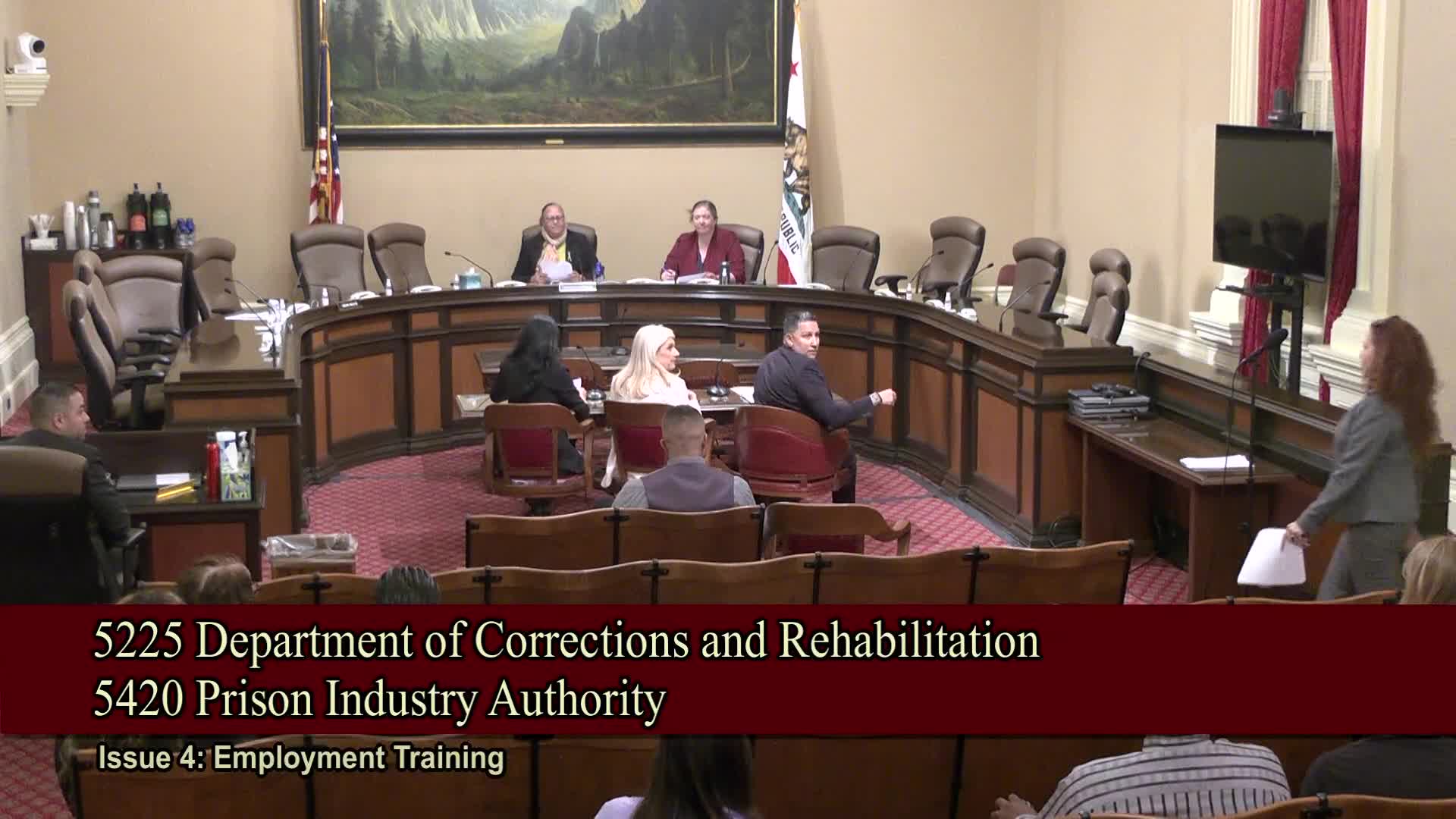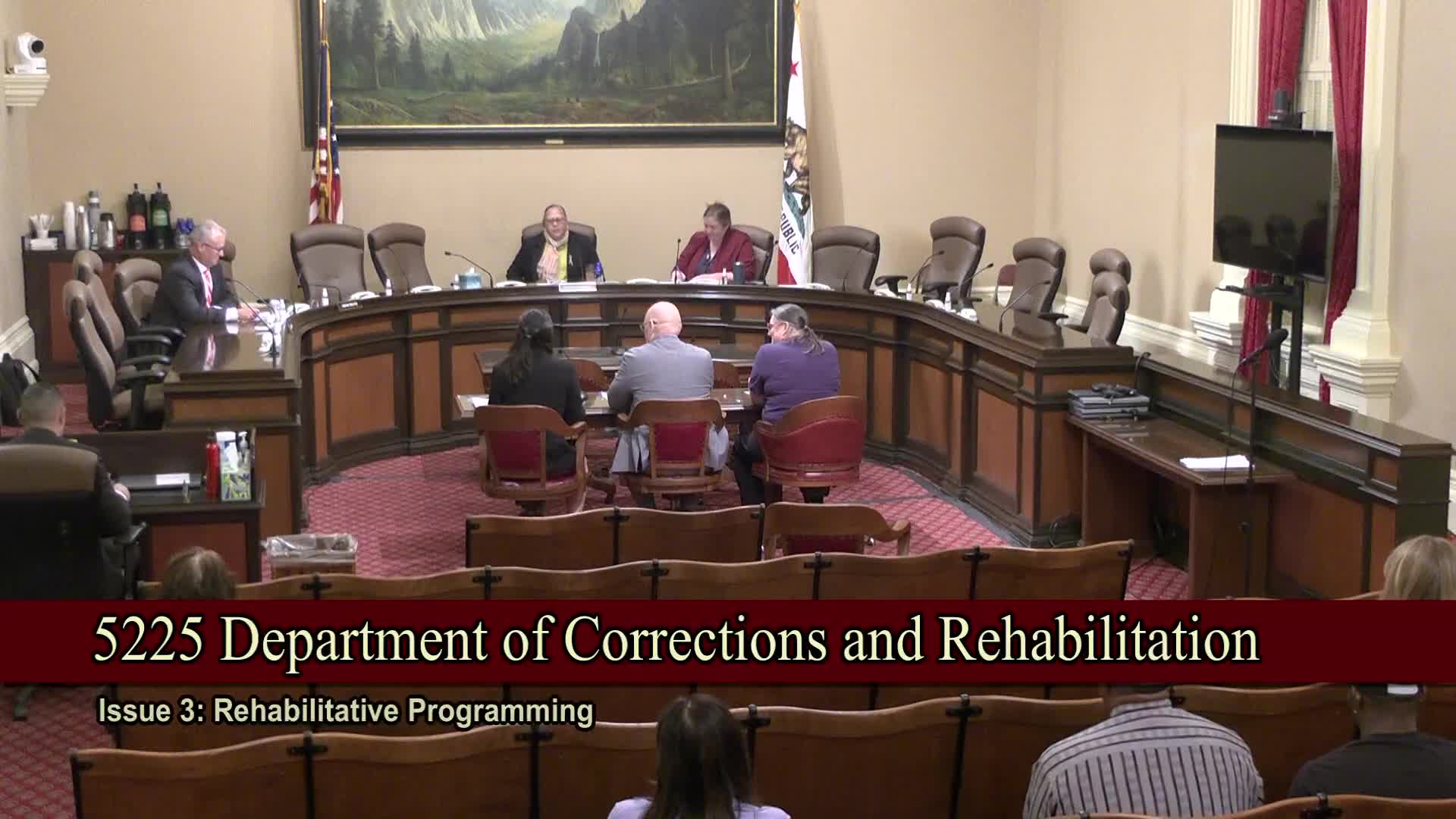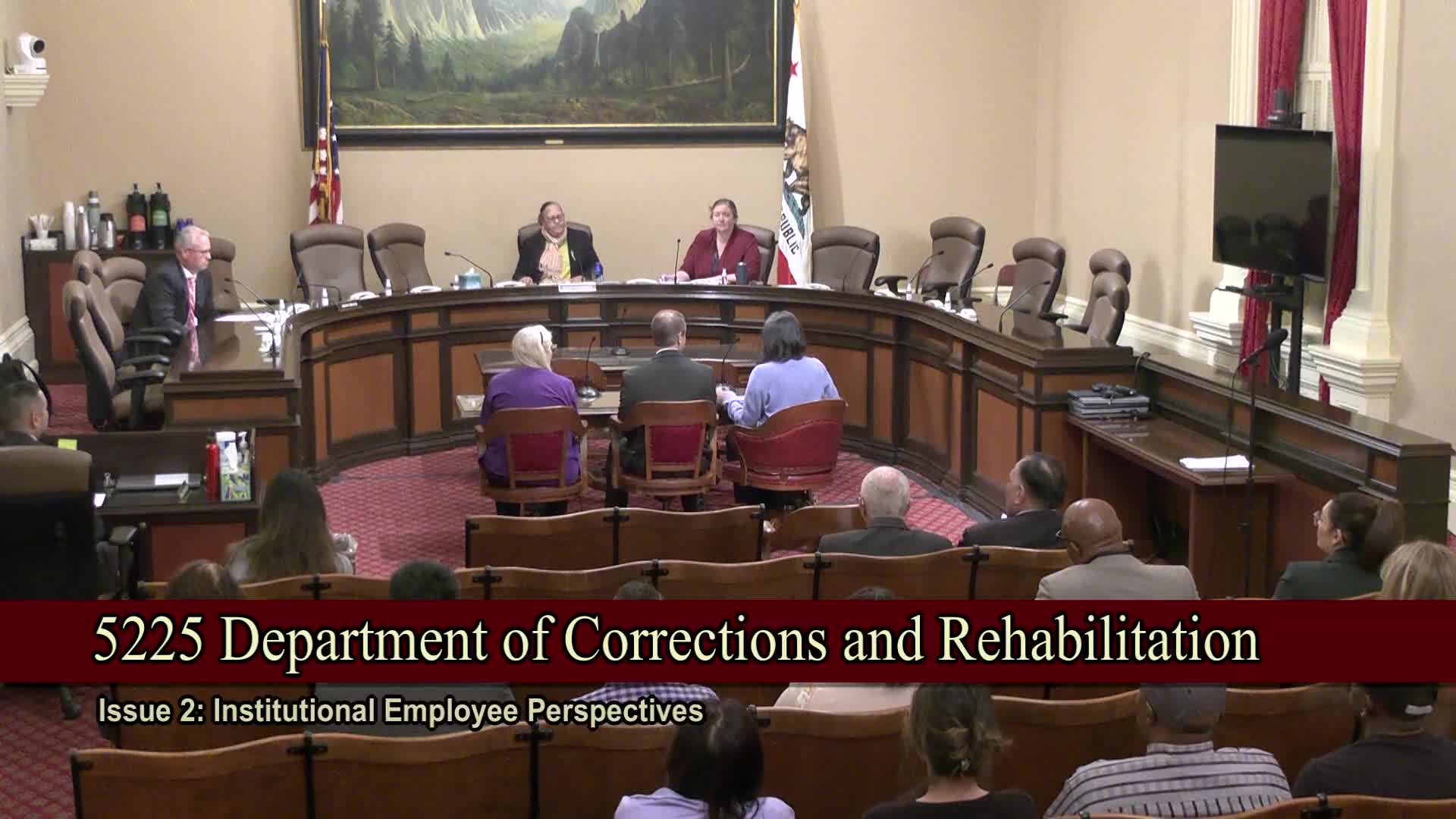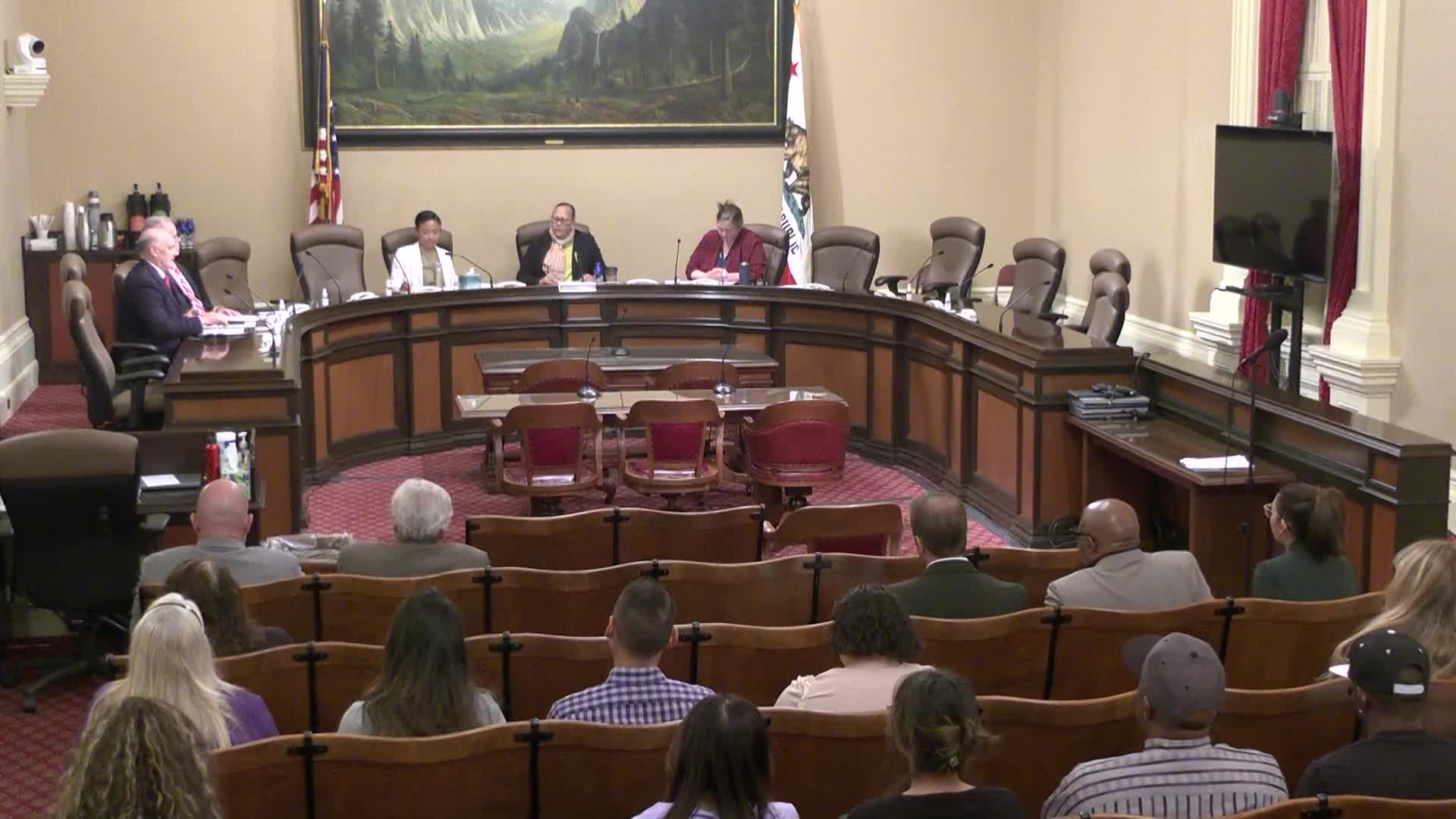Article not found
This article is no longer available. But don't worry—we've gathered other articles that discuss the same topic.

CalPIA and CDCR describe job training, apprenticeships and pre-release hiring tools tied to lower returns to custody

Community-led prison rehabilitation programs say ‘BRIGHT’ grants lower recidivism; groups ask legislature to restore funding

Prison psychiatrists, psychologists and nurses tell Senate contracting, mandatory overtime and registry stretch staff and threaten continuity of care

